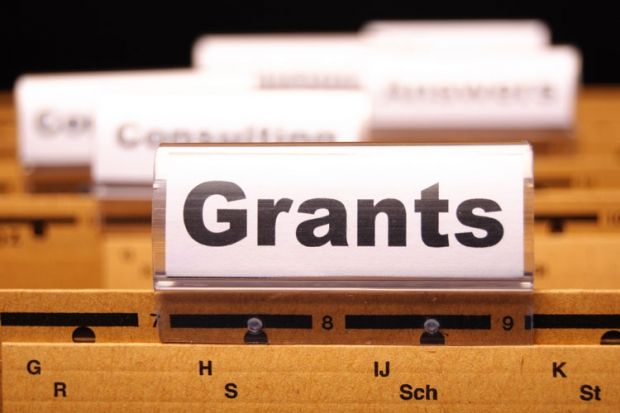Medical Research Council
- Award winner: Susan Fairweather-Tait
- Institution: University of East Anglia
- Value: £20,654
Selenium in early life to enhance neurodevelopment in unfavourable settings (SELENIUS)
- Award winner: Matthew Avison
- Institution: University of Bristol
- Value: £195,846
Detecting antibiotic resistance proteins in clinical samples using proteomics
- Award winner: John Robertson
- Institution: University of Nottingham
- Value: £615,065
Identification of in vivo generated human autoantibodies for the screening and early detection of primary colorectal cancer (CRC)
Leverhulme Trust
Research Project Grants
Sciences
- Award winner: Elena Gheorghiu
- Institution: University of Stirling
- Value: £130,595
Elucidating the role of colour in shape-processing in human vision
- Award winner: Rebecca Melen
- Institution: Cardiff University
- Value: £173,742
Main group catalysis: chiral borenium cations
- Award winner: James Moore
- Institution: Goldsmiths, University of London
- Value: £164,459
Exploring intentionality biases in the analysis of human behaviour
Arts and Humanities Research Council
Research grants
- Award winner: Richard Hingley
- Institution: Durham University
- Value: £689,801
Iron Age and Roman Heritage: exploring ancient identities in modern Britain (IA&RH)
- Award winner: Matthew Baerman
- Institution: University of Surrey
- Value: £410,990
Loss of inflection
- Award winner: Philippa Lovatt
- Institution: University of Stirling
- Value: £39,154
Southeast Asian Cinemas Research Network (SEACRN): promoting dialogue across critical and creative practice
- Award winner: Ryan Rabett
- Institution: Queen’s University Belfast
- Value: £741,415
Human adaptation to coastal evolution: late Quaternary evidence from Southeast Asia (SUNDASIA)
In detail
Award winner: Deborah Mawer
Institution: Birmingham Conservatoire, Birmingham City University
Value: £461,583
Accenting the Classics: Durand’s Édition classique (c. 1915-25) as a French prism on the musical past
Analytical, cultural and historical musicology will be blended with musical performance to study the “French accent” given to earlier European piano music (the “classics”) in French music publisher Durand’s multi-volume Édition classique A. Durand & fils. “[This] seemed an ideal way to capitalise on the strengths of our French Music Research Hub, also enabling fruitful collaboration with the Royal Northern College of Music,” Deborah Mawer, research professor of music and director of the French Music Research Hub at the Birmingham Conservatoire, told Times Higher Education. “We hope to discover how this…accenting…varies from subtle inflection through to more radical rewriting of texts, dependent on editor and period, and how in turn this may help us rethink our understanding of performance, then and now.” Information about the edition’s role and network will shine light on topics such as French cultural identity, the works of 20th-century French composers, and pedagogy and wartime publishing. “Using the Durand edition as its timely focus, this project is significant in bringing together early-late period expertise, disciplines of analysis, editing and cultural history, as well as creating dialogue between academics and performers. It has exciting potential to change practice,” Professor Mawer added.
Register to continue
Why register?
- Registration is free and only takes a moment
- Once registered, you can read 3 articles a month
- Sign up for our newsletter
Subscribe
Or subscribe for unlimited access to:
- Unlimited access to news, views, insights & reviews
- Digital editions
- Digital access to THE’s university and college rankings analysis
Already registered or a current subscriber?



